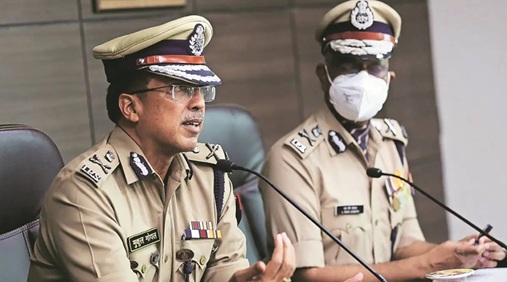| (Mains Exam, General Studies Paper- 2: Functions and responsibilities of the Union and the States, Issues and challenges related to the federal structure, Devolution of powers and finances to the local level and its challenges) |
Reference
The Centre has notified a Single Window System for the appointment of Directors General of Police (DGPs) in the states in line with the directions of the Supreme Court.

Process of appointment of DGP
- As per the Supreme Court judgment in Prakash Singh vs Union of India (2006), the states have to appoint the DGP from among the top three officers empanelled by the Union Public Service Commission (UPSC).
- The court emphasised on fixed tenure and merit-based, transparent selection process to minimise political interference.
- The officer being considered for appointment to the post of Director General of Police/Chief of Police should have at least six months of remaining service as on the date of vacancy.
- States should send proposals to the UPSC at least three months before the occurrence of the vacancy or the date of retirement of the Director General of Police/Chief of Police.
- The Centre has put the onus on the State by directing it to appoint a Secretary-level officer of the Government to certify the minimum tenure of DGP-rank officers sent to the UPSC for empanelment.
New system of appointment
- The single window system will be managed by the Ministry of Home Affairs in collaboration with the UPSC.
- The single window system includes a detailed check-list and standard and easy-to-use formats for submission of proposals by States.
- This will streamline and expedite the process of empanelment by the UPSC.
- Objective: To digitally centralise and streamline empanelment, eligibility verification and communication between states and the Centre.
- The move is expected to bring uniformity and timeliness in the DGP appointment process.
Need for the new system
- Ensure compliance with Supreme Court guidelines
- Prevent ad-hoc or politically motivated appointments
- Promote professionalism, transparency and efficiency in police leadership
- Facilitate better Centre-State coordination in police reforms
Challenges
- Some states may see this as a loss of autonomy in the selection of top police officials, leading to a debate on federalism.
- Implementation of the new system is dependent on active state cooperation and timely submissions.
Conclusion
The single window system is an important effort towards institutionalising police leadership reforms but its success will depend on cooperative federalism and commitment from both the Centre and state governments.